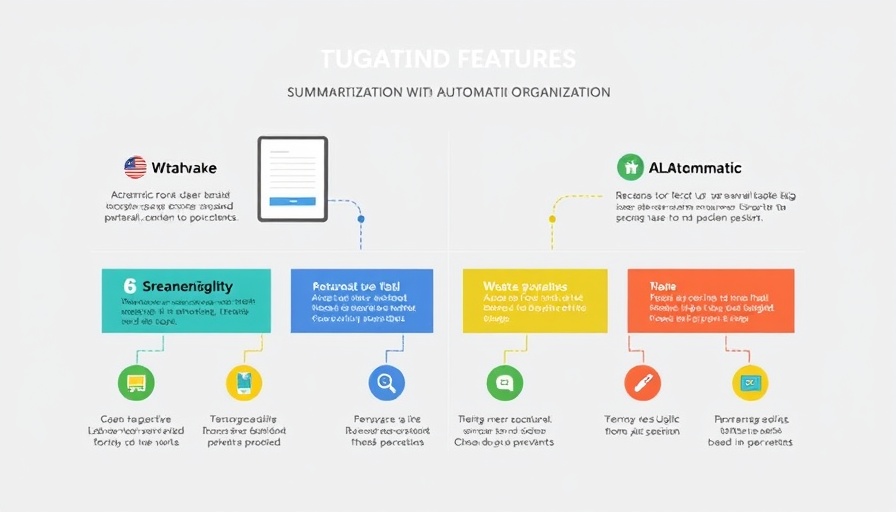
Unlocking the Power of AI in Academic Research
In the ever-evolving landscape of academic research, tools like ChatGPT are no longer just optional conveniences but essential components for success. Since its launch in November 2022, ChatGPT has revolutionized interaction with information, providing users with a platform to expedite various research processes. This advancement parallels historical milestones in technology, such as the printing press, which also transformed data accessibility and education.
Understanding ChatGPT's Projects Feature
At its core, the Projects feature within ChatGPT serves as a dedicated workspace where researchers can upload critical materials such as PDFs, articles, and slides. This functionality turns ChatGPT into a customized research assistant that pulls insights strictly from the specified documents. As we navigate this new frontier, understanding Projects becomes essential for educators, researchers, and administrators keen to leverage AI effectively.
Why Projects Matters for Researchers
The significance of Projects cannot be overstated. By confining the AI's responses to only the documents you upload, it effectively reduces the risk of 'AI hallucinations' — errors where the AI generates responses based on incorrect or irrelevant information. This capability is particularly valuable when conducting literature reviews, a time-consuming yet crucial aspect of research. Uploading your chosen papers allows for tailored question-answering that is directly grounded in your materials, thus enhancing the quality of insights received.
Maximizing Your Use of Projects
Each project in ChatGPT can accommodate up to 20 files, which is generally sufficient for targeted inquiries. As highlighted in other discussions around AI research tools, it is recommended to upload between 10 and 15 documents to avoid overwhelming the model. This keeps the focus sharp and the outputs relevant to the inquiry at hand.
Comparing ChatGPT and Other AI Tools
Although ChatGPT's Projects feature offers a robust way to leverage personalized documents, other platforms like NotebookLM provide a unique advantage with their flexibility. NotebookLM allows users to interact with selected documents individually, creating a more dynamic research experience. This direct engagement can lead to deeper insights as researchers have the liberty to explore specific documents in detail.
Future Trends in AI-Assisted Research
As generative AI continues to evolve, the implications for academic research are far-reaching. The capacity for AI to process and analyze vast amounts of data in tandem with human intelligence sets the stage for a more collaborative approach to research. The integration of tools like ChatGPT signifies a shift towards more efficient and streamlined research methodologies.
Actionable Insights for Educators
Educators and researchers are encouraged to dive into using AI tools to stay ahead of trends in academic innovation. Exploring features like ChatGPT's Projects can be a game-changer, ultimately fostering more effective and thorough research practices. Embracing these tools now means preparing for the future of academia, where technology and traditional research methods will converge more than ever.
Harness the power of AI in your research and witness the transformative impact it can bring. From streamlining literature reviews to enhancing interactions with your academic materials, the Projects feature in ChatGPT is a tool every researcher should have in their arsenal.
 Add Row
Add Row  Add
Add 




 Add Row
Add Row  Add
Add 

Write A Comment